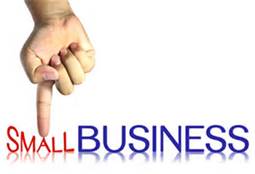 There are a lot of statistics about small businesses in the United States and the majority of them are designed to mislead. Small business in America is on the decline and has been for decades. This is because it’s under assault from very large, or Enterprise, businesses and their allies, the politicians of both parties.
There are a lot of statistics about small businesses in the United States and the majority of them are designed to mislead. Small business in America is on the decline and has been for decades. This is because it’s under assault from very large, or Enterprise, businesses and their allies, the politicians of both parties.
One misleading statistic you will see is that small businesses make up 97% of all businesses in the United States. This number relies on what are called Non-Employer businesses. Those companies that generally have one self-employed person and no payroll. They make up about 75% of all businesses but only contribute 3.4% of business receipts and are essentially a non-factor in the health of the economy.
Small business advocates will spew out this 97% and claim it is the backbone of our economy. It is not.
The definition of a small business is somewhat dependent on receipts and type of business but is generally defined as having less than 250 employees. However, the breakdown by the government creates a group of 100-499. I’ll go with two sets of numbers. As of 2008 small businesses that employ less than 100 people account for about 35% of the total workers in the US. If we use the 499 or less standard that number rises to 49.4% of the total employees. Let’s split the difference and call it 42%.
The important difference is receipts and sales, money. As of 2008 out of a total of some six million businesses there were over 3.5 million very small businesses with sales or receipts totaling $670 billion. There were 20,500 enterprise businesses generating $20.3 trillion dollars in sales or receipts out of a total of some $29 trillion.
If we compare those enterprise companies, those with $100 million or more in sales or receipts, to all the rest we find that .34% of the total number of businesses generated 68% of the wealth. The other 99.66% of businesses contributed 32% of the wealth. I repeat, those 20,500 enterprise businesses represent .34% percent of the total number of employer businesses in the United States, some six million businesses in all, and yet accounted for 68% of all sales receipts.
In 1997, as far back as I can find numbers, enterprise businesses accounted for .29% of all businesses and 59% of total receipts. Therefore in that sixteen year period enterprise businesses gained 9% of total U.S. sales and receipts at the expense of small and medium-sized businesses.
That’s enough statistics.
I think we’re all aware that money influences politics, money gets a politician elected, and politicians pass legislation to help those who fund their campaigns.
With that in mind, examine from where the money comes. It’s not small businesses. Therefore the trend makes sense.
The tax code is heavily biased towards large businesses. The business tax rate is 35% but the real tax rate, that which is actually paid, is 11%. When you factor in that many large businesses pay almost no taxes it is clear that small and medium-sized businesses are the ones paying that 35%, and it’s killing them.
For my friends who vote Republican because they are supposedly small business friendly I have but a single question. Why would any enterprise business want to change the current tax system?
For my friends who vote Democrat because they are supposedly worker friendly; when taxes are raised it only hurts the small businesses who want to provide a decent product and employ people at a decent wage. Enterprise businesses are immune because of their political connections in both parties.
The current system is stacked against small businesses. There are arguments that enterprise businesses bring wealth, cheaper products, more employment, and a better standard of living. This is not erroneous in many respects. I’m not against enterprise business. I’m against a playing field that is unfair. I’m against a Congress that passes laws to help one business at the expense of another. This hurts competition and rots capitalism from the inside.
If an enterprise business succeeds without an unfair advantage, more power to them. I love a hard worker with a great idea who gets rich. It helps everyone.
My point here is that both parties are bought and sold by those with money and that’s called a Plutocracy.
If you choose to vote for Republicans or Democrats that’s your business. Just don’t be fooled by their words. Look at the metrics.
Tom Liberman
Sword and Sorcery fantasy with a Libertarian Ideology
Current Release: The Sword of Water ($2.99 for a full length eBook)
Upcoming Release: The Spear of the Hunt